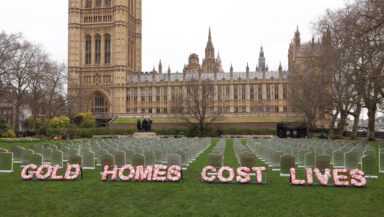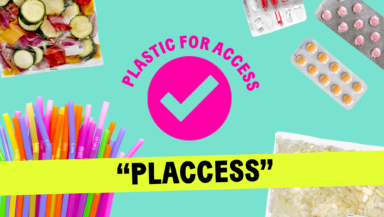Dealing with the first wave of coronavirus has upended our economy and transformed day-to-day life in the UK. But most people don’t want to return to business as usual. Many of us want to see a more resilient society – one that’s better able to deal with major shocks and crises.
Coronavirus has highlighted just how unequal our society is in the UK. If we want to build back better, we have to make sure the system we create works for everyone. We can only do that by fighting racism and inequality as we rebuild.
The climate emergency and its causes impact people of colour more
Did you know that waste incinerators are three times more likely to be built near communities of colour? That means that they live with worse levels of air pollution, which can seriously affect health. Air pollution can cause respiratory and heart disease, and also worsens conditions affecting the lungs – like coronavirus. Experts even believe that air pollution is likely to be increasing the number and severity of Covid-19 infections.
Black people in the UK are also four times more likely than white people to have no access to outdoor space at home, which impacts their ability to access nature. During lockdown, many of us have realised how fundamental the outdoors are to our wellbeing. Everyone should be able to enjoy it.
The world is built to be more comfortable for some people than for others. But everyone should have access to the things they need to enjoy a healthier, safer, cleaner, greener future.
Around the world, people of colour suffer the worst impacts of climate change – a problem which is mainly caused by richer, western countries. This is environmental racism. Returning to business as usual would disproportionately harm people of colour. But it doesn’t have to be that way – there are solutions.
Putting people before profit
Building back better means putting people before profit. Social justice has to be at the heart of the UK’s economic recovery plans to make sure existing inequalities don’t widen further.
As well as green proposals, recovery measures need to address income, health and environmental inequalities.
Tackling climate change and injustice should go hand in hand – caring for the planet and caring for people go together. This isn’t just charitable, or a ‘nice to have’. Many of the solutions to the climate emergency that the government can start on right away – creating green jobs, restoring nature, making it easier to cycle and walk – are good for people as well as for the planet.
Policies which may not seem to be directly related to social justice have the potential to massively improve people’s lives – because for the changes to be as big as we need them to be, they need to be as accessible as possible.
For example, home insulation is one of the things people have called for as part of the green recovery. As well as lowering energy bills for everyone, better housing standards will mean everyone has access to warm homes – potentially ending fuel poverty for good.
Similarly, green jobs in renewable industries would provide the economic security which so many across society – particularly younger people – have been left without for many decades.
Empowering workers, protecting public health and preserving nature are all fundamental to a green recovery. All of these things are connected, and that’s why a green recovery should also work to empower people who experience the most severe impacts of polluting industries and climate change.
Social justice must be at the heart of the climate movement, to ensure that no one gets left behind. Of course it’s ambitious to try to tackle all of these issues at the same time – but that’s the point. Coronavirus upended our world at lightning speed, and it’s become clear now that almost everything has to change so that society can be kinder, greener and more resilient.
Those charged with designing green recovery measures need to be imaginative and brave enough to build a better world – for everyone on the planet, not just a lucky few.



